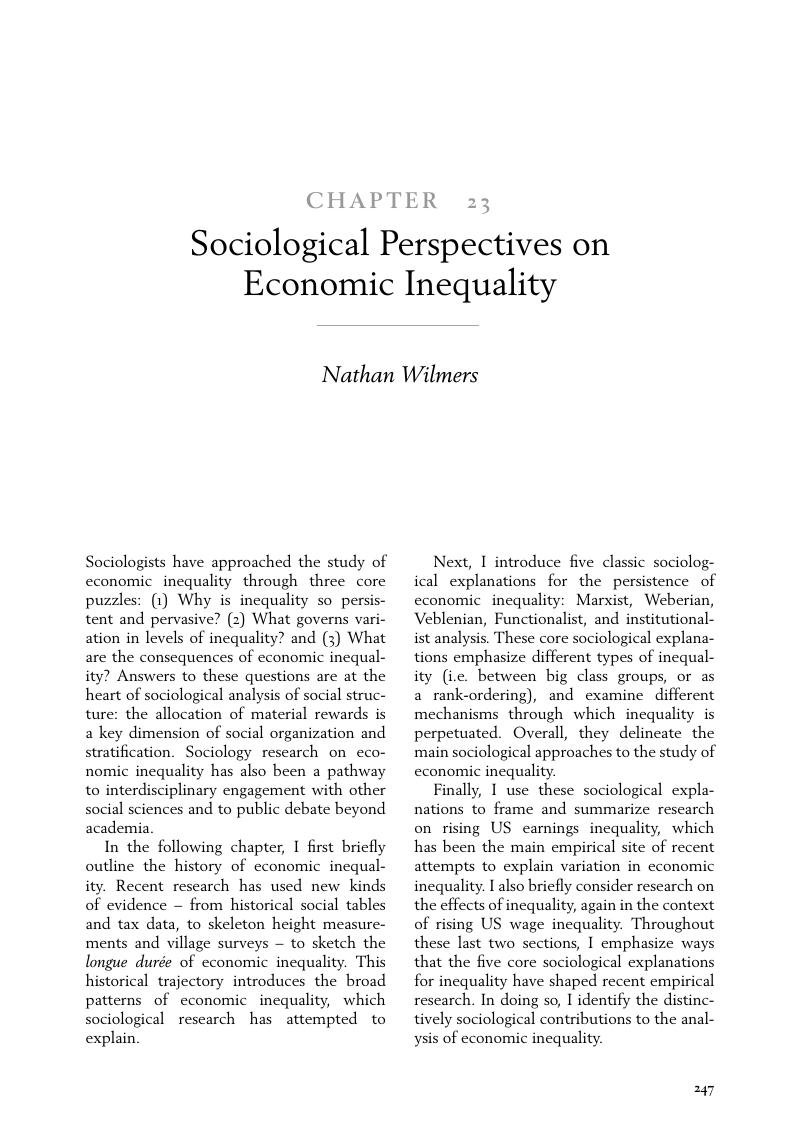Book contents
- The Cambridge Handbook of Sociology
- The Cambridge Handbook of Sociology
- Copyright page
- Contents
- Figures
- Tables
- Contributors
- Introduction
- Part I The Development of Sociology
- Part II Sociological Theory
- Part III Sociological Research Methods
- Part IV Culture and Socialization
- Part V Social Structure and the Organization of Society
- Part VI Social Inequality and Diversity
- Chapter 23 Sociological Perspectives on Economic Inequality
- Chapter 24 The Sociology of Race and Ethnic Relations
- Chapter 25 The Sociology of Gender
- Chapter 26 The Sociology of Sexuality
- Chapter 27 The Sociology of Disability
- Part VII Social Institutions
- Part VIII Social Problems and Deviant Behavior
- Part IX Locality, Geography, and the Environment
- Part X Social Change
- Index
- References
Chapter 23 - Sociological Perspectives on Economic Inequality
from Part VI - Social Inequality and Diversity
Published online by Cambridge University Press: 21 September 2017
- The Cambridge Handbook of Sociology
- The Cambridge Handbook of Sociology
- Copyright page
- Contents
- Figures
- Tables
- Contributors
- Introduction
- Part I The Development of Sociology
- Part II Sociological Theory
- Part III Sociological Research Methods
- Part IV Culture and Socialization
- Part V Social Structure and the Organization of Society
- Part VI Social Inequality and Diversity
- Chapter 23 Sociological Perspectives on Economic Inequality
- Chapter 24 The Sociology of Race and Ethnic Relations
- Chapter 25 The Sociology of Gender
- Chapter 26 The Sociology of Sexuality
- Chapter 27 The Sociology of Disability
- Part VII Social Institutions
- Part VIII Social Problems and Deviant Behavior
- Part IX Locality, Geography, and the Environment
- Part X Social Change
- Index
- References
Summary

- Type
- Chapter
- Information
- The Cambridge Handbook of SociologyCore Areas in Sociology and the Development of the Discipline, pp. 245 - 246Publisher: Cambridge University PressPrint publication year: 2017



